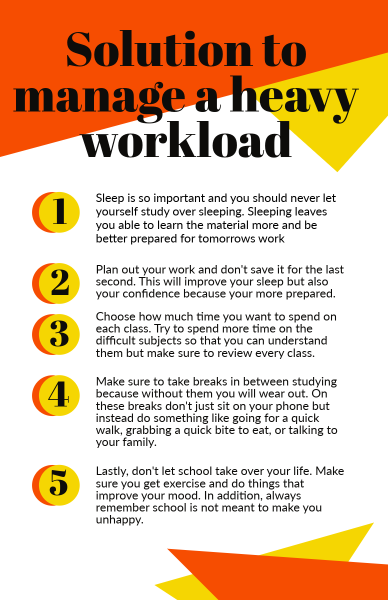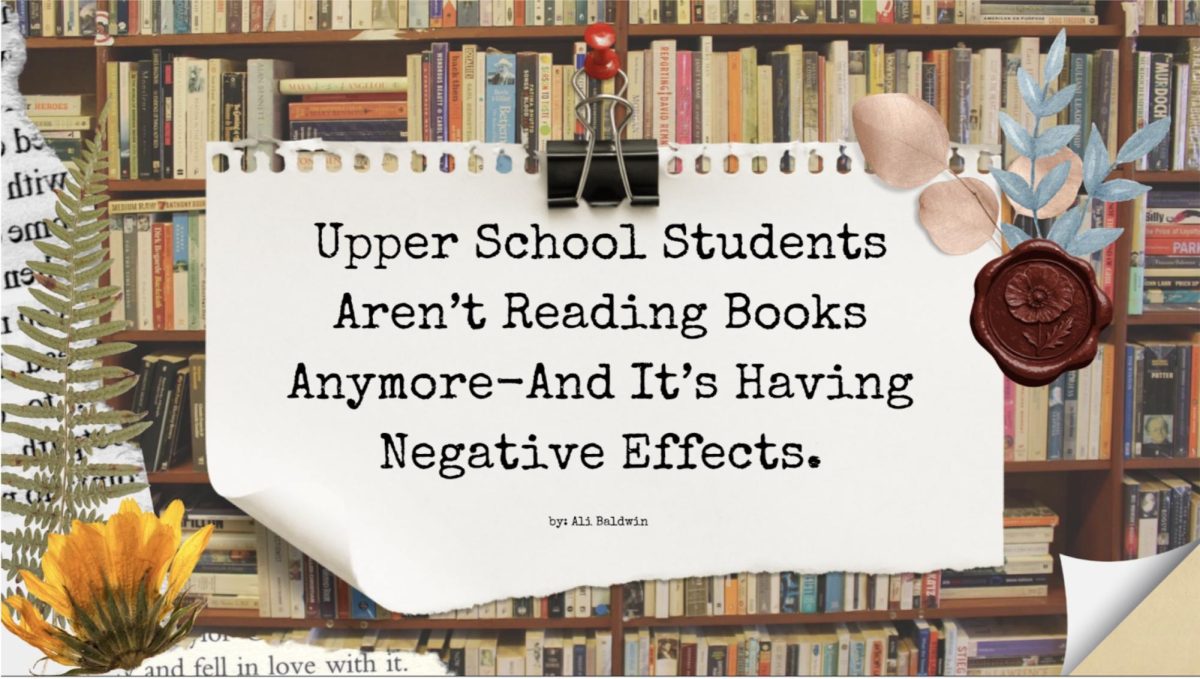The end of the year is a stressful time for both the students and the teachers. The students are being assigned tons of different projects, essays, and tests every day, along with a workload of homework every night. Teachers feel that they are being rushed and are attempting to cram the last bit of their courses into the last few weeks. Due to the number of assessments the teachers are assigning, they are also in a rush to grade everything and get it back to the students as quickly as possible. This increase in work can lead to unwanted stress for students, which can lead to a drop in effort and grades.
Teachers could argue that the third week of school is hard for them as well, and we understand that. They might say that it’s hard to properly balance the workload they assign, especially when schedules vary from student to student. Some students play on varsity sports teams and others participate in higher level classes. Teachers are not able to cater to every student’s needs and schedule, which prevents students from being able to efficiently study and split up their time. For example, it could be the start of the week, and a student knows they have two days to study for a test on Wednesday, but also has two assessments on Friday, causing the student to cram for the other assessments on Friday.
The editorial board believes that there has been an extreme overload of major assessments at the end of the year. A possible solution for this could be the teachers shortening their curriculum or communicating with each other to spread out their assessments. With students having nearly 5 major assignments in a week, it can be hard to manage and many times leads to their life at home being affected. A typical experience is getting home at 6:00 p.m. after a long day of school and having to immediately sit down and start working on different assignments for 4 different classes. This student also has to make time for themselves to eat dinner, shower and go to sleep at a regular time, but the overflux of assignments is prohibiting them from this.
 Another aspect of the end of the year cramming is teachers attempting to fit a whole unit into one last week of school. This is detrimental because if a student is being forced to do this for every class they are taking, they aren’t able to fully comprehend and consume the information they are being taught. When every single class is taken up by learning something new and not instead being able to practice the skills they were taught in the prior class, students aren’t able to have enough time to realize whether or not they need to reach out for help and fully understand a concept. Due to the fact that they are too busy trying to stay caught up with all the new information coming their way.
Another aspect of the end of the year cramming is teachers attempting to fit a whole unit into one last week of school. This is detrimental because if a student is being forced to do this for every class they are taking, they aren’t able to fully comprehend and consume the information they are being taught. When every single class is taken up by learning something new and not instead being able to practice the skills they were taught in the prior class, students aren’t able to have enough time to realize whether or not they need to reach out for help and fully understand a concept. Due to the fact that they are too busy trying to stay caught up with all the new information coming their way.
We propose that teachers should try assigning more cumulative and analytical assessments, such as projects. Although projects are widely known as “easier” compared to tests, they are a good way to test the general knowledge of the unit. It also tests whether or not students have been listening attentively to what their teachers have been saying. We think teachers should have a meeting in person where they organize the assessments required for the rest of the year. Planning ahead gives teachers time to communicate with each other, as well as give their students necessary assessments in a way that eliminates the crush of final assignments.











